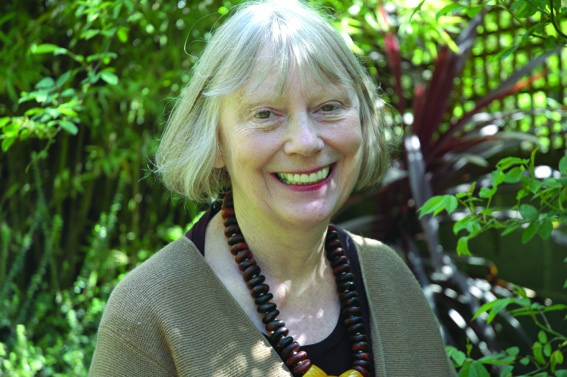Promise of a Dream: Sheila Rowbotham's encounters in the sixties

To celebrate the publication of Rebel Crossings: New Women, Free Lovers, and Radicals in Britain and the United States — the latest work from this pioneering feminist writer and activist — here's a lively extract from her memoir Promise of a Dream (reproduced below).
We have 40% off all the books on our Sheila Rowbotham bookshelf this week. Includes free shipping (worldwide) and bundled ebooks (where available).
Ends Sunday 30th October at midnight (UTC). Click here to activate your discount.
Photo: James Swinson
My allies among the dons at St Hilda’s, Bridget Hill and Beryl Smalley, were both socialists too. I discovered later that they had combined to rescue me when I was in danger of being kicked out after doing badly in the prelims exams. Bridget Hill was refreshingly enthusiastic and straight-spoken in the donnish atmosphere, and I was later to learn that she had a long-standing interest in the emancipation of women. Though I admired Beryl Smalley, I was less comfortable with her because she seemed scholarly in a remote, rather monastic way. She was, in fact, a Catholic Marxist with deep radical convictions. Observing my wretched bewilderment with the history of diplomacy, she sent me off to the iconoclastic historian of the French Revolution Richard Cobb to study European social history. This act of perception had decisive consequences for me. The impish figure with subversive eyes and a complexion veined with drink was to introduce me to the exciting ‘history from below’, which was beginning to note the voices and opinions of the poor. Moreover, when I went to Balliol to discuss what I should read during the holidays, Cobb instructed me to visit some friends of his in Halifax. ‘They write about Chartists,’ he declared, waving his arms vaguely.
I rang Dorothy and Edward Thompson from Leeds and shyly mumbled about being a student of Richard’s. I had no idea as I tramped up the steep hill to their house that I was about to meet two friends who would profoundly influence my approach to history and to left politics. Nor did I know that these were two formidable former Communists who, along with 10,000 other dissidents, had left the party in 1956.
An attractive dark-haired woman in her thirties dressed in black slacks and a black polo-necked jumper greeted me warmly in the kitchen. I took to Dotty immediately and loved the house, with its stark old farm furniture and all those books again. After a while a tall man with a craggy face and uncoordinated limbs emerged from his study. He jutted out into the surrounding space of the room at unexpec- ted angles. Not only was Edward striking in appearance, there was a suppressed energy about all his movements. He repeatedly ran his fingers through a shock of hair which refused to stay flat. When he spoke, enthusiasm mixed with earnestness and jokes spluttered out.
That night, Dorothy and Edward took me in a Land Rover which Dorothy said reminded Edward of the tank he drove in the Second World War to see the Halifax Thespians perform Harold Pinter’s play The Caretaker. When he bumped into a pillar in the car park I could see what she meant, though it was hard for me to imagine this man as a soldier. It was never to be easy for me to envisage the war. The forties as a decade still loomed too close to be distinguished as history, while hovering just outside my conscious memory. This blankness always exasperated Edward. ‘Your generation has so many choices,’ he observed once.
When I came to know them better, Dorothy and Edward laughed about my arrival. A cowardly Edward had been in hiding because they had decided my nervous voice on the phone must be that of a student, abandoned, possibly pregnant, from the nefarious Richard’s time at Leeds University. He had emerged only when Dorothy had hissed into the study, ‘It’s all right.’
Around the same time I came across a socialist closer to my own age, the poet Ken Smith, who was then working on Jon Silkin’s literary magazine Stand. When we bumped into one another in Leeds reference library, Ken was swathed in a long second-hand tweed overcoat – Leeds market pioneered retro chic – and he had just had his front teeth out. The amalgam resulted in an endearing appearance, part small boy and part tramp.
I used to visit Ken and his wife, Ann, who were the first couple I knew with small children, in a tiny one-up, one-down house in Pudsey and later in their Chapeltown flat in Leeds. Ken’s accounts of his working-class childhood in Hull and the painful sense of separation which came from going to grammar school gave me a glimpse of the alienation Barry must have experienced at Oxford. He enthused about the First World War poets Wilfred Owen and Isaac Rosenberg, and berated the contemporary establishment of academic, sophisticated poetry as middle class and removed from everyday experience. Ken was associated with a rebellious group of Northern poets, which included Ted Hughes, and they were intent on defying the London ethos of middle-class gentility. Ken introduced me not only to the fierce class struggles of contemporary poets but also to his friend from childhood, a young intellectual shop steward on Hull docks called Dave Godman. Through Dave’s angry class consciousness, I began to comprehend the meaning of class in the context of collective resistance, not simply as a sense of individual dislocation.